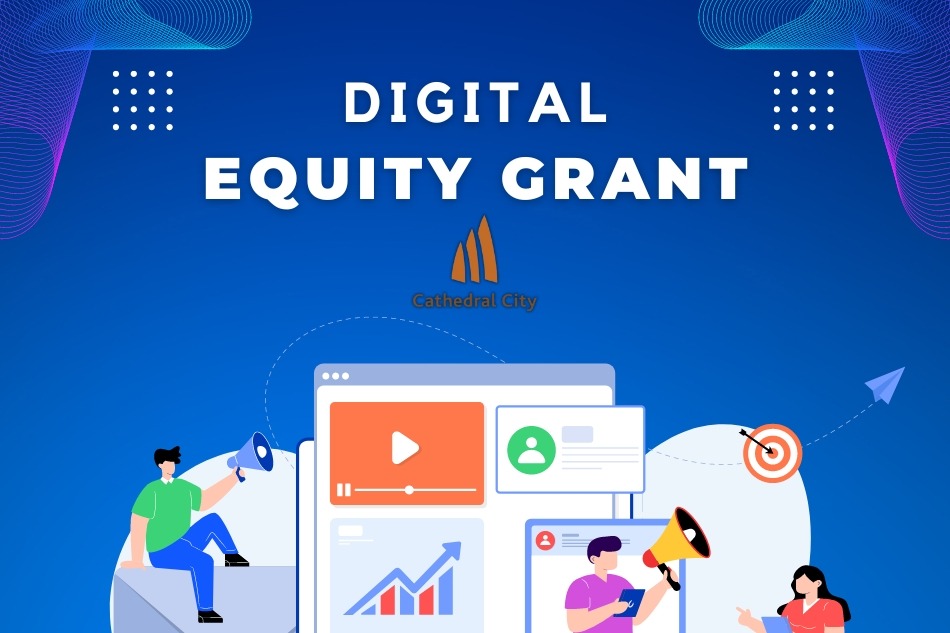The California Emerging Technology Fund (CETF) announced the award of $20,000 Digital Equity Leadership Grants to 36 jurisdictions in California to participate in the Local Government Best Practices Check List Project to accelerate the adoption of policies and practices to accelerate progress in closing the Digital Divide in California.
The CETF Digital Equity Leadership Grants are made possible as a result of a Memorandum of Understanding (MOU) between CETF and T‐Mobile USA in which T‐Mobile committed to specified public benefits in conjunction with its acquisition of Sprint in 2020, including $5,000,000 for Digital Equity Leadership Grants. CETF has committed $1,155,000 to the Local Government Best Practices Check List Project.
The Local Governments who are receiving $20,000 grants are:
- City and County of San Francisco
- City of American Canyon
- City of Artesia
- City of Bell Gardens
- City of Bellflower
- City of Brawley
- City of Cathedral City
- City of Citrus Heights
- City of Inglewood
- City of Isleton
- City of Long Beach
- City of Los Angeles
- City of Maywood
- City of Moorpark
- City of Ontario
- City of Palmdale
- City of Placerville
- City of Rosemead
- City of San Diego
- City of San Luis Obispo
- City of Sand City
- City of Santa Paula
- City of South El Monte
- City of West Sacramento
- County of Del Norte
- County of Inyo
- County of Marin
- County of Mono
- County of Napa
- County of Nevada
- County of Plumas
- County of San Benito
- County of Sierra
- County of Sonoma
- Town of San Anselmo
- County of Yuba
The counties and cities applying for the Digital Equity Leadership Grants all agreed to participate in three online workshops, referred to as a “Learning Community,” between September 2024 and March 2025 to address common challenges, share their expertise, and identify lessons learned that can be available in a public report by June 2025. Each Local Government submitted at the end of May 2024 an initial assessment of their Best Practices according to the Check List for which they received $1,000 to underwrite the staff time to complete it.
They submitted Grant Applications at the end of June for the Learning Community. The applications were reviewed and scored by representatives of existing Digital Equity Leadership Grants, including Regional Broadband Consortia (RBCs), California State Association of Counties (CSAC), Southern California Association of Governments (SCAG), San Diego Association of Governments (SANDAG), and WiConduit based in Sonoma County. Statewide there are 12 Counties and 24 Cities receiving $20,000 Grants. RBCs, SCAG, and SANDAG also will receive additional funding to participate in the Learning Community.
The Local Government Best Practices Check List was developed and released in 2021 by CETF, RBCs, and CSAC. It sets forth 5 Best Practices for each of 5 Roles that Local Governments can play in closing the Digital Divide, promoting Digital Inclusion, and achieving Digital Equity: (1) Policy Leader; (2) Planner; (3) Regulator; (4) Consumer Purchaser; and (5) Service Provider. These 5 Roles were first delineated in a Resource Guide for Local and Regional Leaders published by CETF in 2010 in collaboration with the Orange County Business Council and updated in 2021 in partnership with Valley Vision, the fiscal agent for the Connected Capital Area Broadband Consortium. The Check List provides a framework for Local Governments to assess their own progress. The concept of the Learning Community recognizes that local leaders will drive progress if supported to share their experiences to coach one another with peer accountability for measurable progress.
Local Governments will be able to use the $20,000 Grant as they see most useful to close the Digital Divide in their jurisdiction. They also will be provided information by CETF about affordable lower-cost Internet service plans and available digital literacy training resources to distribute in their digitally-disadvantaged neighborhoods.
“We are very energized to have the opportunity to work with 36 Local Governments to share Best Practices for closing the Digital Divide, promoting Digital Inclusion, and achieving Digital Equity, which will be model statewide and across the nation,” said CETF President and CEO Sunne Wright McPeak. “We are grateful to our partners for reaching out and engaging leading‐edge jurisdictions to pave the path forward. There is so much power and innovation that emerges when we join forces to deploy high‐speed Internet infrastructure and get all residents online — especially the most digitally‐disadvantaged residents in low‐income communities.”
McPeak also expressed appreciation to the California Department of Technology (CDT) Office of Broadband and Digital Literacy for contributing valuable content about broadband deployment permit streamlining to the Learning Community. CDT Broadband Access & Deployment Advisor Maria Kelly will be participating in the Learning Community to help support the 36 Local Governments. Digital Equity Leadership Grants also have supported a study by SCAG and SANDAG on permit streamlining that will be another resource for the Best Practices Check List Learning Community.

